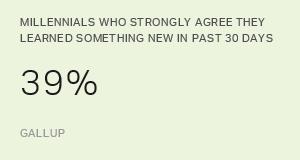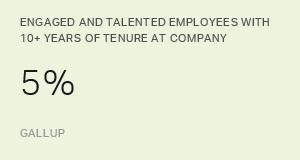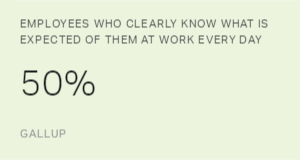It's surprising to me how many organizations still don't "get" millennials. Many of them seem to think that appealing to millennials is complicated, like learning a new language or getting a degree in cross-cultural studies.
As a millennial myself, I can tell you that it's not that complicated. You just have to think a little bit about the stage of life that millennials are in. Most of us are in our 20s to mid-30s. We aren't looking for entry-level work anymore, though we often feel like we are playing catch-up in our career due to a slow start after the Great Recession. Many of us have had one (or even two) major career shifts since college. And we are more likely, on average, to be getting married and having our first kids later in life than our parents did.
Surprisingly to some, we're generally an ambitious lot. Maybe not more than previous generations, but we have had to be adaptable and scrappy in our postcollege years. Plan A didn't work? OK, reinvent yourself and try plan B. Plan B didn't work either? Let's try plan C -- all while trying to do something meaningful with our lives.
For this reason, millennials have a reputation for being the "job-hopping" generation. Hard to please? Perhaps. But that comes from being ambitious, hungry and maybe a little idealistic.
The good news is that if you are trying to develop the next generation of leadership for your organization, you have an enthusiastic group of employees from which to choose. We want to lead.
The bad news -- for many organizations, at least -- is that we also want to grow. In fact, according to Gallup analytics, millennials rank opportunities to learn and grow in a job above all other considerations. We also know that the majority of millennials have not had opportunities to learn and grow in the past year.
If you are trying to retain millennials by tracking their "job satisfaction," you might be looking at the issue exactly backward. For millennials who want to learn and grow, satisfaction can soon lead to boredom and disengagement if they aren't challenged with new opportunities to develop. When this happens, they start looking for a new job -- and that nearly always means looking for a new organization.
So, what can managers do to hold on to their next generation of leaders?
Make employees' aspirations part of performance conversations. All too often, managers fall into the rut of focusing on the past -- talking with their team only about what went well and what needs work. But what millennials want to talk about are their aspirations, goals and ambitions. There's definitely a place for both types of conversations. The best managers figure out what their employees want to become and then figure out how to align personal passions with business objectives.
Have performance conversations more often. Sadly, most employees report that their performance is evaluated either once a year or less. If managers infrequently talk about personal career goals and opportunities to grow, they are missing regular opportunities to rerecruit team members to their organization.
Think beyond titles and promotions. Managers and human resources leaders can't wait for a new job to open at their organization to have conversations about career growth. Growth can mean so much more to an employee than a title or job change. It can mean leading a new project, working with a different team, enjoying greater flexibility, receiving mentorship or even being allowed time to work on a passion project that aligns with the goals of the organization.
Here's the millennial twist: This generation won't stay in a job that doesn't meet their needs -- and they don't always speak up about their problems. HR leaders and managers must be proactive, anticipating opportunities to develop and engage their millennial employees before they move on. Winning over millennial talent has less to do with offering hip perks or remodeling the office than it does with showing millennials that they have a future at your organization where they can learn, grow, achieve and lead.
Gallup can help you attract, engage and retain millennials in your workplace:
- Download our Leading High-Performance Teams course overview to learn how your managers can use ongoing coaching conversations to get the most from your entire workforce.
- Read our pioneering report How Millennials Want to Work and Live.
- Watch our on-demand webinar How Millennials Want to Work and Live.



